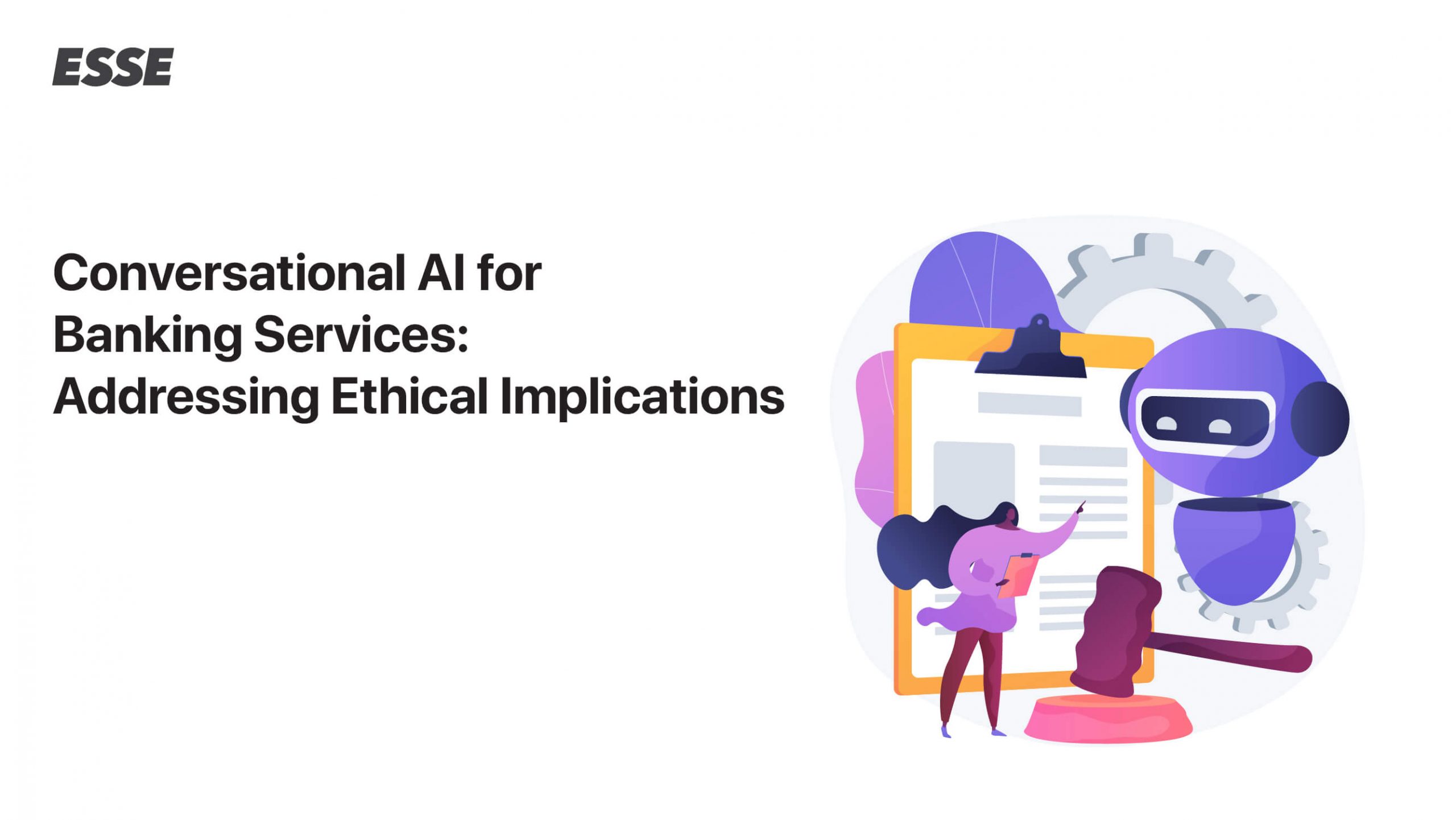As Conversational AI and AI in general gain popularity and widespread use, Gartner research estimates that Conversational AI revenue will increase to $14 billion by 2026, and $47 billion by 2031. However, with this growth comes a crucial need to consider the ethical implications of this technology. Conversational AI systems are designed to interact with humans in a natural language format, potentially influencing and affecting the attitudes and behavior of those who interact with them.
In this blog, we will delve into the ethical implications of Conversational AI in financial services, exploring what they are and how they can be addressed.
Here are some of the main ethical implications of conversational AI in the financial industry:
- Bias and Discrimination: Conversational AI systems may perpetuate and amplify existing biases and discrimination if they are not designed and trained with fairness and equity in mind.
- Privacy and Security: Conversational AI systems may store personal information and data, which can be vulnerable to data breaches or cyber-attacks.
- Transparency and Accountability: Conversational AI systems can operate without adequate oversight or regulation, making it difficult to hold them accountable for their decisions or actions.
- Responsibility and Liability: Conversational AI systems may be held responsible for their actions raising questions of liability and legal responsibility.
To address potential ethical concerns when using conversational AI in financial services, there are several steps that can be taken:
- Designing for Equity
Carefully curate and clean training data for conversational AI systems to ensure fairness and equity. Ongoing monitoring and testing can help identify and address any biases or discriminatory behaviors that may emerge. Also, consider using inclusive and respectful language, gender-neutral terms, and avoiding offensive slurs.
- Data privacy and Security
Prioritize data privacy and security by minimizing data collection, ensuring secure data storage, and limiting data sharing with third parties. Provide users with clear and transparent information on how their data is being collected and used, and give the ability to opt-out of data collection or delete their data at any time.
- Transparency and Clarity
Prioritize transparency and accountability in the design and deployment of conversational AI systems. Make algorithms and models more transparent and understandable, implement oversight and regulation for accountability, and be transparent about data collection and use to build user trust and confidence.
- Responsibility and Liability
Consider responsibility and liability by establishing clear lines of responsibility and liability, implementing regulations for the deployment of conversational AI systems, and informing users about the potential risks and limitations of using these systems. By prioritizing responsibility and liability, conversational AI systems can be developed and used responsibly and ethically, protecting the rights and wellbeing of all stakeholders involved.
End Note
Conversational AI has enormous potential to transform the financial services industry, but it also brings significant ethical implications that must be addressed. By being proactive in addressing these ethical implications, financial institutions can leverage the power of conversational AI while ensuring that it is deployed responsibly and ethically.


Leave a Reply